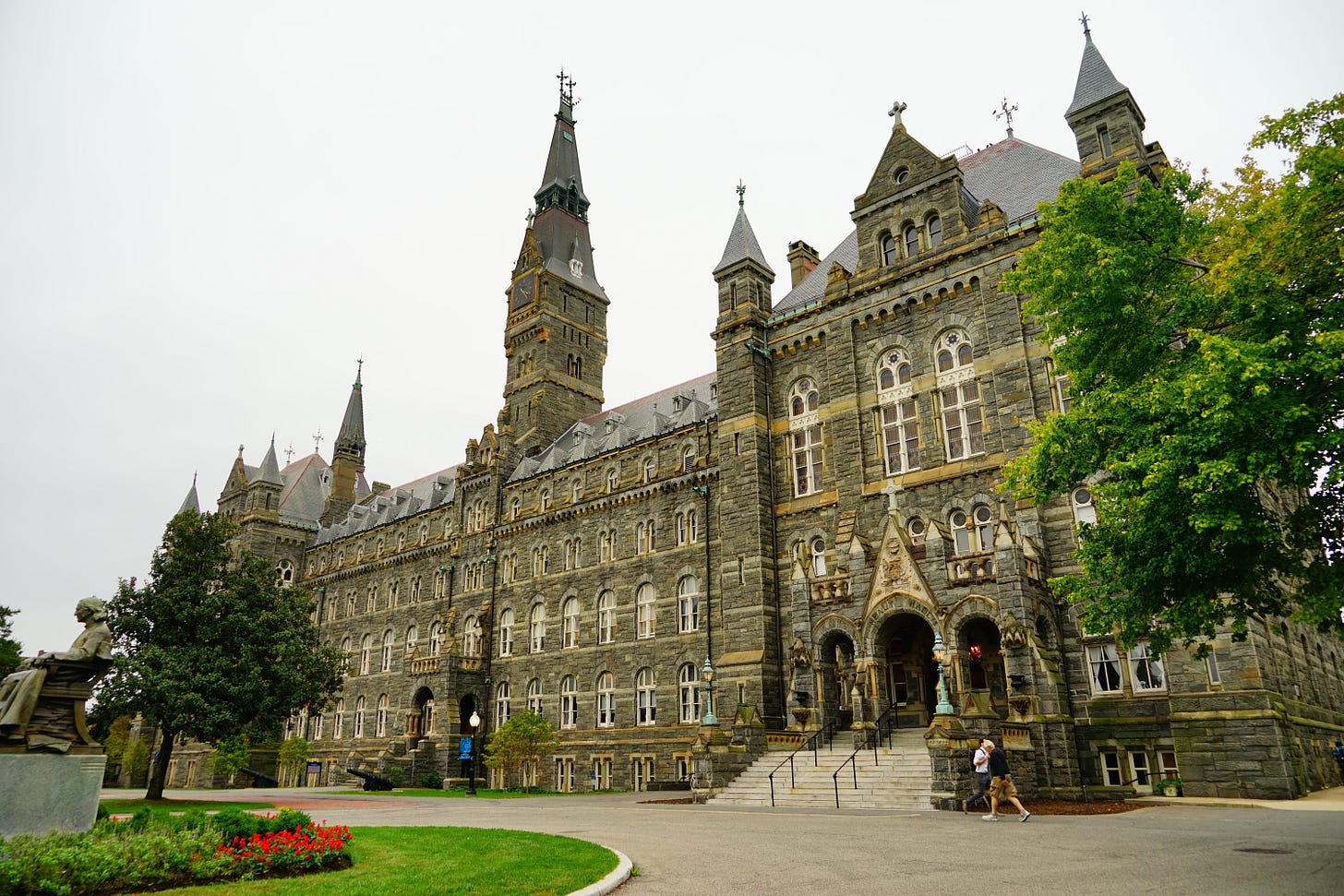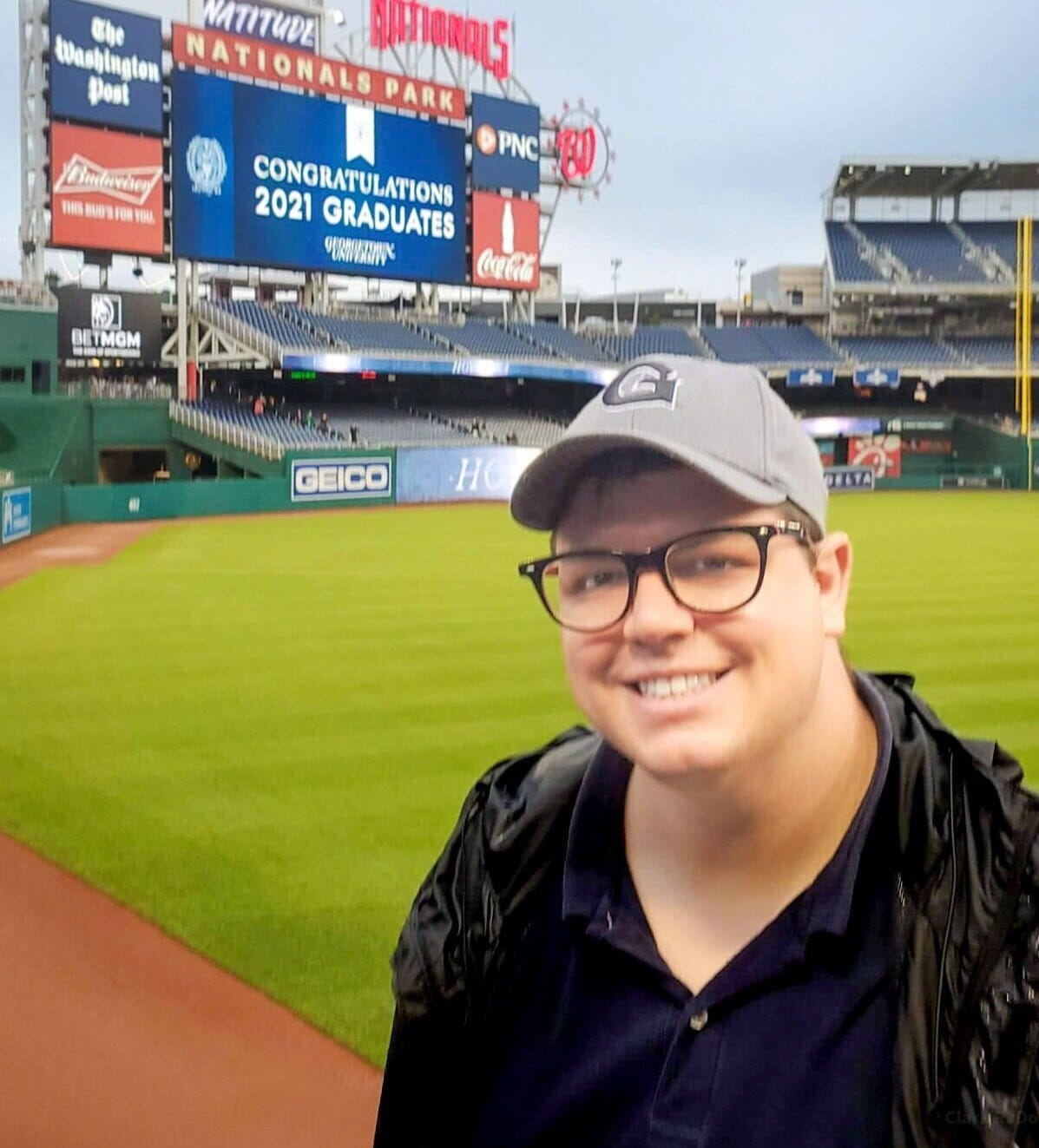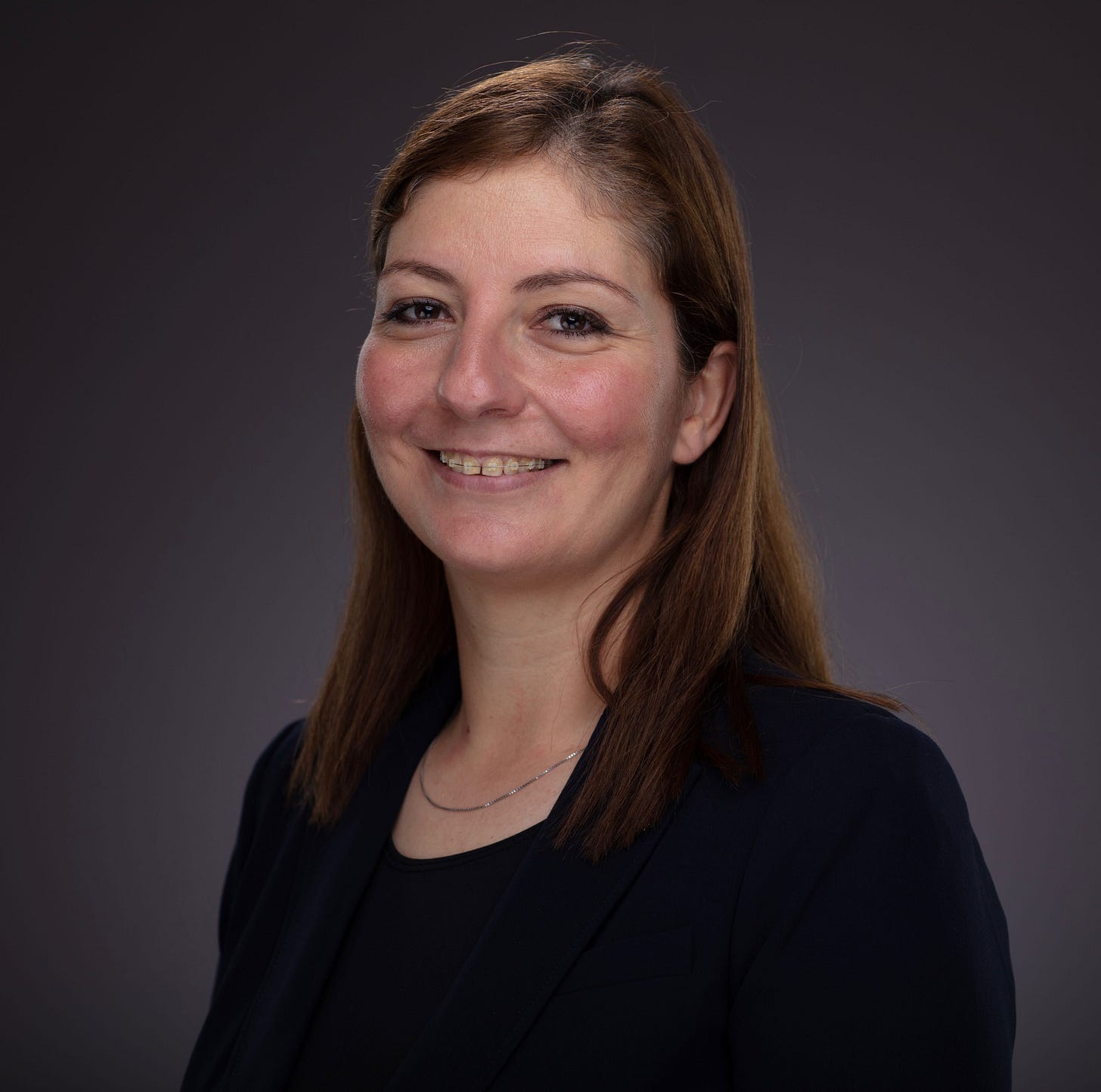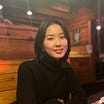The Georgetown Legacy: Four Degrees, Two Campuses and From Thesis to Scrubs
A university's legacy is a major part of its identity. What is Georgetown's?
In recent years, controversies surrounding higher education institutions’ handling of free speech policies and legacy admissions have sparked intense debates and cast shadows of doubt over the integrity and legacy of elite universities.
Amid this landscape of uncertainty, I was inspired to delve deeper into what truly defines the Georgetown Legacy by turning to the voices of lifelong Hoyas whose Georgetown journeys span multiple degrees, diverse roles and global locations.
A Tale of Three Hoyas
Clark Donley, an adjunct faculty member in the Department of Philosophy since 2021, is a “Quadruple Hoya,” who has earned four degrees from Georgetown University: a Bachelor's in Culture & Politics (BSFS, ’08), an M.A. in Latin American Studies (’10), an M.A. in Philosophy (’16) and a Ph.D. in Philosophy (’21).
Georgetown’s strong academic programs, particularly in the School of Foreign Service and Latin American Studies, initially drew him in. With support from his professors, he pursued a combined program in Latin American Studies and later a master’s in Philosophy.
His acceptance into Georgetown's Ph.D. program, along with its broad, interdisciplinary curriculum and personal motivations, solidified his decision to continue his academic journey at the university.
Margaret Wang, M.D. is an Internal Medicine specialist. Her journey to Georgetown for undergrad, medical school and MedStar residency was shaped by unexpected turns, guided by what she sees as God’s plan. Initially, Georgetown wasn't on her radar, as it’s not as highly favored in the typical Asian community compared to her second choice, University of California Berkeley.
However, to everyone’s surprise, her grandfather insisted she attend Georgetown, and after visiting, she knew it was the right fit. When applying to medical school, she applied to schools on the East Coast to stay close to her church. She received just one interview and one acceptance—Georgetown.
She has since been actively involved in her church’s community. Currently serving as a staff member at the Asian Baptist Student Koinonia at Georgetown University, she hopes to help younger generations explore their faith and find a meaningful anchor in life.
Tina Kareema Dauod-Akguc is an adjunct instructor teaching classes at the intersection of Diplomacy and Foreign Policy at Georgetown University’s Qatar campus. She earned her B.S. in Foreign Service and an M.A. in Middle Eastern Studies, both from Georgetown. She joined the School of Foreign Service as a transfer student, drawn to the alignment of Georgetown's academic programs with her interests.
Upon finishing her undergraduate studies, she pursued a master's degree and completed coursework towards a PhD in Arabic at Georgetown to further develop her expertise in Middle Eastern studies, beyond her language skills and Arab heritage.
After a career that spanned decades of service as a diplomat in the State Department and as a Foreign Policy Advisor and Pearson Fellow on Capitol Hill, she returned to Georgetown as an adjunct instructor in 2023, while on sabbatical from the State Department.
The Georgetown Experience
For Professor Donley, the Georgetown experience is one marked by constant growth rooted in the increasing realization of the importance of intellectual humility with exposure to diverse global perspectives. He developed a cosmopolitan perspective during his undergraduate studies, an interdisciplinary approach in his master’s program and intellectual humility through his PhD experience.
“I've always felt challenged intellectually to expand my horizons to develop new skills to become a better thinker and researcher,” he said.
Throughout the PhD program, Donley’s role evolved from an undergraduate student to a graduate student, then a teaching assistant, and eventually an instructor. After graduating, he taught a variety of courses.
Inspired by the Jesuit approach to teaching, he incorporated principles of self-cultivation, development, reflection and contemplation into his courses. He focused on the importance of community and intellectual growth and designed assignments and assessments to reflect these values and his experiences at Georgetown.
“It’s also crucial to recognize that many others have existed, made contributions and had hopes and dreams that we need to engage with in dialogue,” he said. “My hope is that when people receive a truly cosmopolitan or interdisciplinary education, it fosters this kind of engagement.”
Both Dr. Wang and Professor Dauod-Akguc share Professor Donley’s appreciation of the rich diversity of viewpoints and backgrounds they experienced throughout their time at Georgetown.
Dr. Wang recalls a classmate who identified as a communist and registered for an elective John Milton class taught by Jewish Professor Jason Rosenblatt. Despite rarely agreeing with each other, they got along well. These intellectual encounters and idea clashes in and out of the classroom are how Dr. Wang saw Georgetown creating a diverse environment and a community-like feeling that encourages students to build their own moral foundations and worldviews through deep relationships and invigorating, provocative conversations.
These core values of deep respect for every human being’s dignity that Georgetown instilled in Dr. Wang were a moral compass as she entered the professional medical world. Georgetown’s dedication to service and public well-being, especially through Georgetown Hospital’s charity work, is especially important to her.
She recalls a moving experience with a young woman in the hospital’s Infectious Disease Center, who was battling end-stage AIDS infections while caring for a child.
“She needed medications that cost $10,000 per dose,” Dr. Wang said. “No one expected her to live, but the Medical Ethics Committee, driven by the Jesuit belief that every single life matters, decided to do everything to fight for her life until she passed.”
Professor Dauod-Akguc highlights the university’s efforts to accommodate diverse needs, including religious accommodations, which made her feel valued and supported. She shared the tremendous value of having an imam available on campus to her during her undergrad years, and the continued ties that led to that same imam officiating her wedding. Pointing to inclusive practices, like prayer spaces and interfaith iftars, Professor Dauod-Akguc stated that this variety of support for minorities is one of the key reasons many Muslims enroll at Georgetown.
“Because we feel seen and heard. We feel accepted.” She said, “Georgetown is not telling us how to practice our religion, nor are we telling anyone else. We're given the freedom to practice our religion,” while being part of one Georgetown family.
Legacy Admission and Georgetown's Path Forward
When it comes to legacy admissions, given the history of inequality and the exclusion of large groups of people from American education, Professor Donley doesn’t believe it’s just to continue incorporating those preferences into our current admissions policies. He hopes to see Georgetown, along with other universities, make decisions rooted in justice and equity, acknowledging the disturbing and unjust histories that still impact us today.
Dr. Wang is not against legacy admissions unless legacy students are clearly unqualified. She believes legacy families contribute to Georgetown’s identity, appreciating the curriculum, culture and traditions enough to pass them down to the next generation.
In her view, while legacy status shouldn’t be the sole consideration in admissions, a mutual connection to Georgetown’s values and a network of strong ties can enrich the school’s identity. She suggests that Georgetown’s campus identity is carried and embodied by its students as they move through their studies and into life after school.
Professor Dauod-Akguc believes that there is absolutely more to be done in the space of equity and justice in the world, but commends the U.S. and Georgetown’s commitment to addressing issues openly.
“While we’re not perfect,” she commented, “the ability to openly discuss and address our challenges in the United States is one of the strengths of our country and our institutions, even when it's hard."
Georgetown’s Legacy In Practice
To Professor Donley, the Georgetown Legacy is one of expanding inclusiveness and cosmopolitanism.
“While there are legacies of injustice, there are also beautiful legacies of thought, reflection and philosophy that need to be included,” he said. “Part of my work is focusing on the positive aspects of humanity's legacy and considering how they can shape us as members of the Georgetown community and as human beings.”
Dr. Wang emphasizes Georgetown’s core value of Cura Personalis, or caring for the whole person. This is a value she learned and continued to develop a deeper understanding of as she transitioned into her professional role.
Her time as an undergraduate and a medical student at Georgetown, she recalls, “foster[ed] a space for ideas to collide, not in division, but in active conversation without aggression.” It may be competitive, but not cutthroat, and students aren’t reduced just to grades and credentials. “The focus is on treating people as whole beings, and understanding their background and story.”
She internalized this value when she started her clinical practice. As a physician, she is often confronted with difficult ethical questions and grey areas of humanities. By anchoring her practices in cura personalis, she provides her patients with the best medical advice by understanding their lifestyles and circumstances holistically.
Living by the values of fundamental respect for others and deep appreciation of diversity and inclusivity, Professor Dauod-Akguc sees her role as facilitating discussions and dialogues and encouraging respectful debates to continue building a safe environment at Georgetown where people can voice and air their concerns or disagreements and hear others out empathetically.
While different sets of reasons brought Professor Donley, Dr. Wang and Professor Dauod-Akguc to Georgetown and led them to complete their unique Georgetown journey, they agree that the Georgetown legacy goes beyond Georgetown University as an academic institution.
It carries the essence of creating a lifelong appreciation for a global perspective, embracing diversity and fostering an inclusive environment. It cultivates a strong culture of respectful and constructive dialogue, rooted in caring for others as whole persons, which Hoyas can carry into their personal and professional lives and pass down to future generations.







